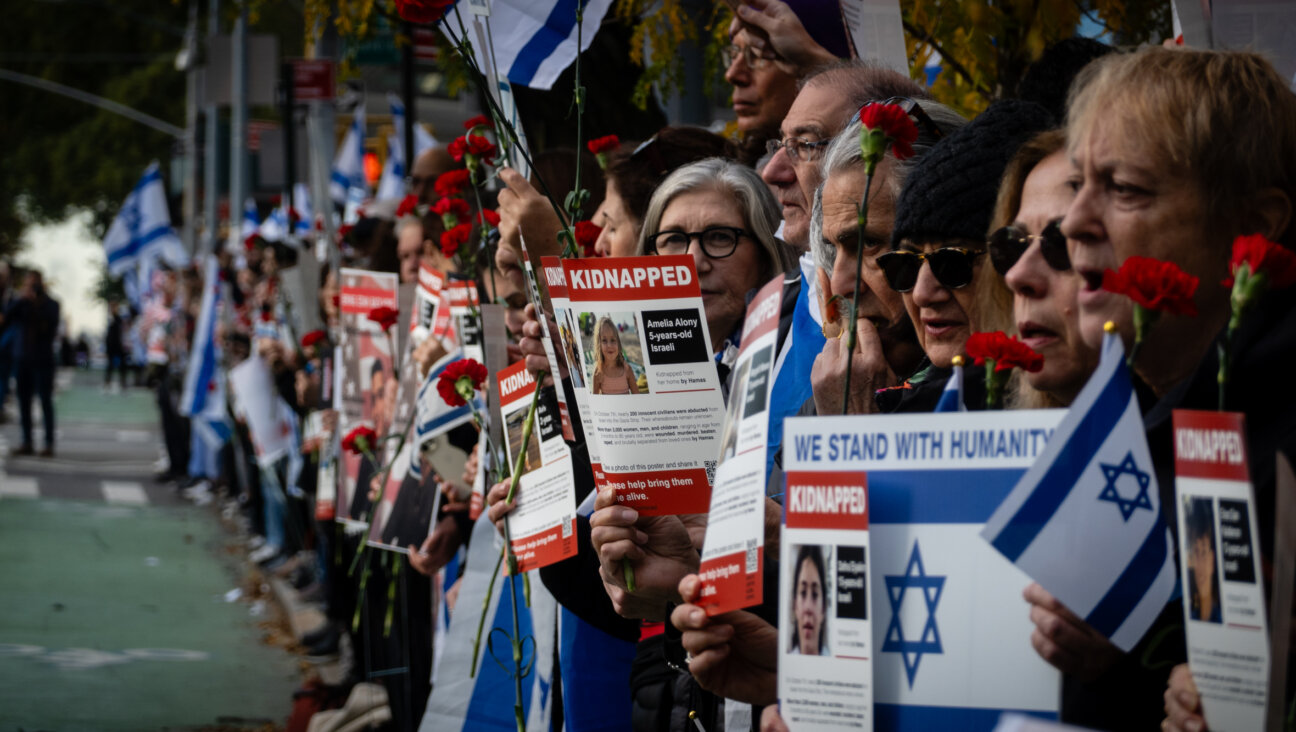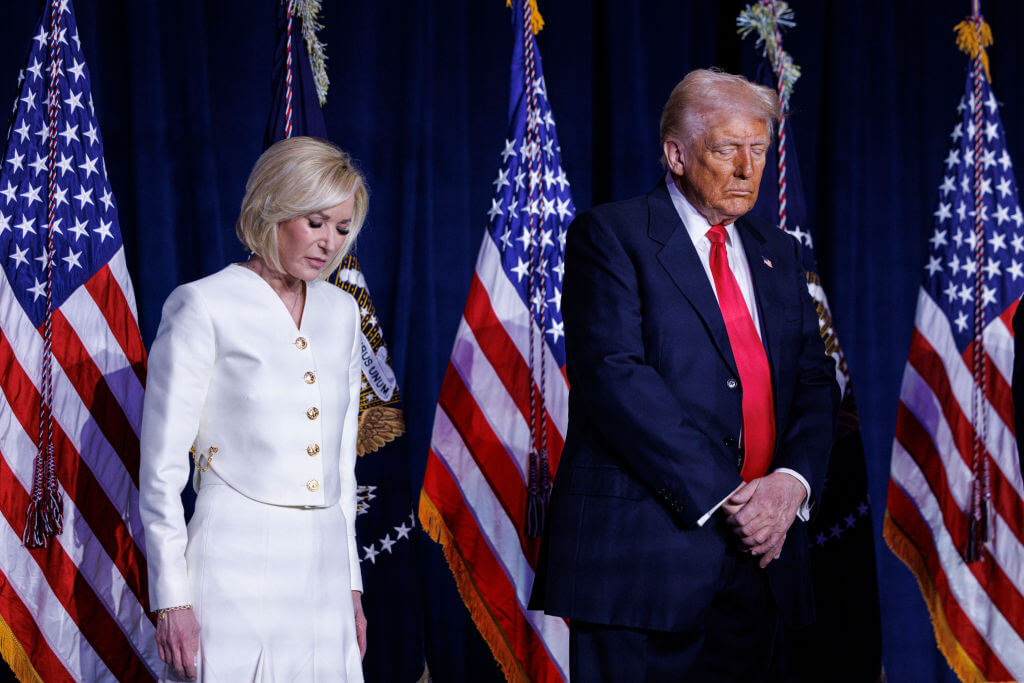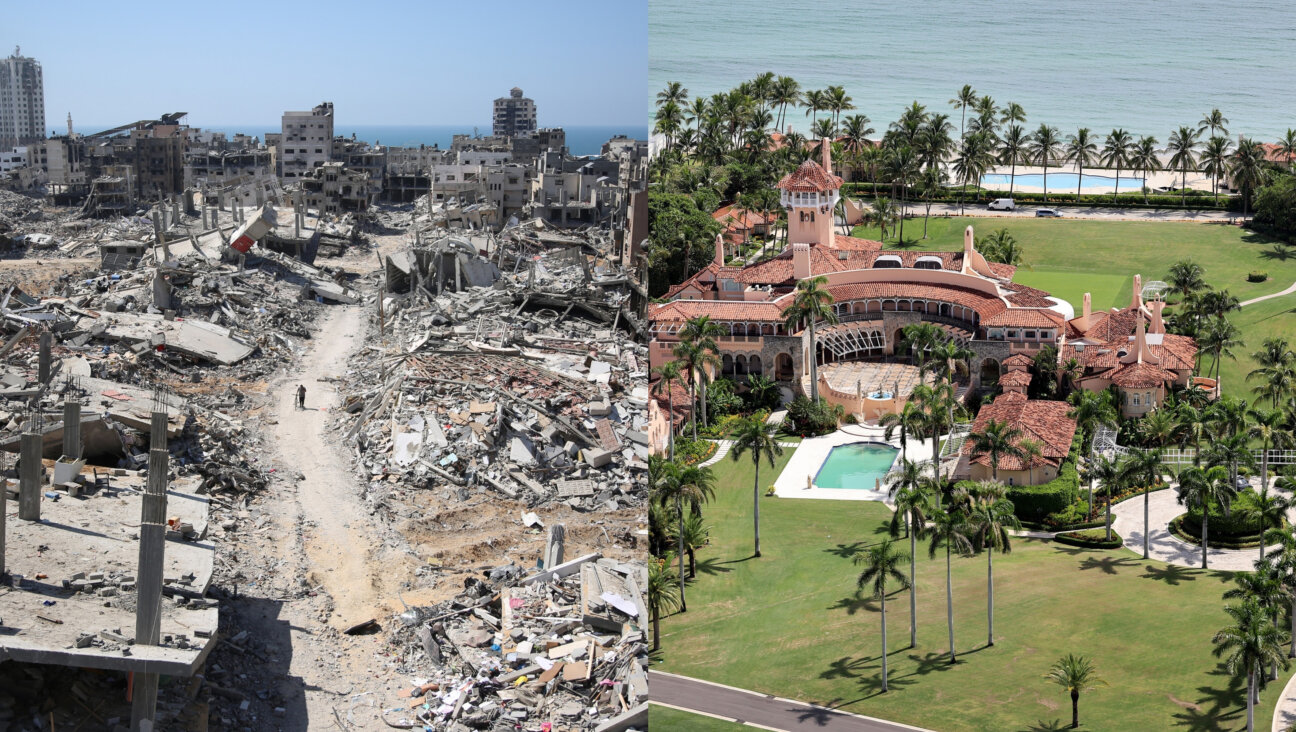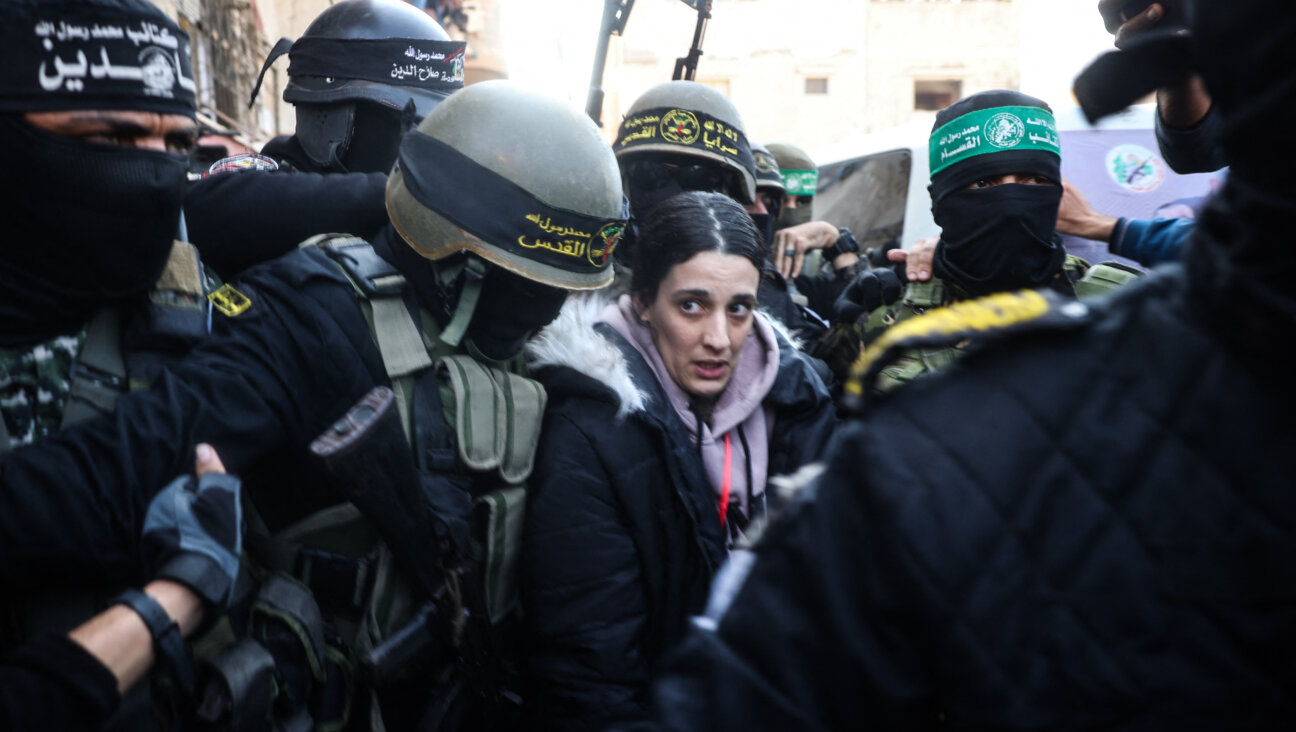Israel Hopes To Mute Call to Prayer

Too Loud or Too Arab? Palestinians inspect damage inflicted on mosque by right-wing Israeli settlers. The IDF is looking into ways of reducing the volume on Muslim calls to prayer, which irritate residents of nearby settlements. Image by getty images
Israel’s Civil Administration in the West Bank is looking into ways to use technology to mute the sound volume of electronically amplified muezzin calls in mosques.
Settlement leaders frequently complain about the noise of the muezzins, whose electronically amplified calls to prayer can easily be heard in nearby Jewish settlements, including at night when people are trying to sleep. Usually the Civil Administration’s response to such complaints is to forward them to the Liaison Office, which forwards them to the Palestinian Authority’s Ministry of Waqf (religious affairs ), which then asks the muezzin in question to turn down the volume on his sound system. That usually produces a temporary respite.
But after a few weeks, a Civil Administration official told Haaretz, the muezzins usually turn the volume back up.
Last week, therefore, Civil Administration head Brig Gen. Moti Almoz convened a meeting with some of the army’s technical experts. One proposed that the problem could be solved by technology: A system could be placed in every mosque that would measure the volume and automatically reduce it if it exceeded a preset decibel level.
Installing the systems would obviously require the Palestinian Authority’s cooperation. But Civil Administration officials said they think the PA would also be happy to find a solution to the issue, because many Palestinians also complain about overly loud muezzin calls.
Almoz ordered his staff to investigate the systems’ feasibility. If it appears practical, the Civil Administration will discuss it with the PA, and perhaps also with international organizations.
Almoz also sent a letter to one settler leader who recently complained about the noise from a nearby mosque to tell him about the proposed solution now under consideration.
For more, go to Haaretz.com
A message from our Publisher & CEO Rachel Fishman Feddersen

I hope you appreciated this article. Before you go, I’d like to ask you to please support the Forward’s award-winning, nonprofit journalism so that we can be prepared for whatever news 2025 brings.
At a time when other newsrooms are closing or cutting back, the Forward has removed its paywall and invested additional resources to report on the ground from Israel and around the U.S. on the impact of the war, rising antisemitism and polarized discourse.
Readers like you make it all possible. Support our work by becoming a Forward Member and connect with our journalism and your community.
— Rachel Fishman Feddersen, Publisher and CEO






















